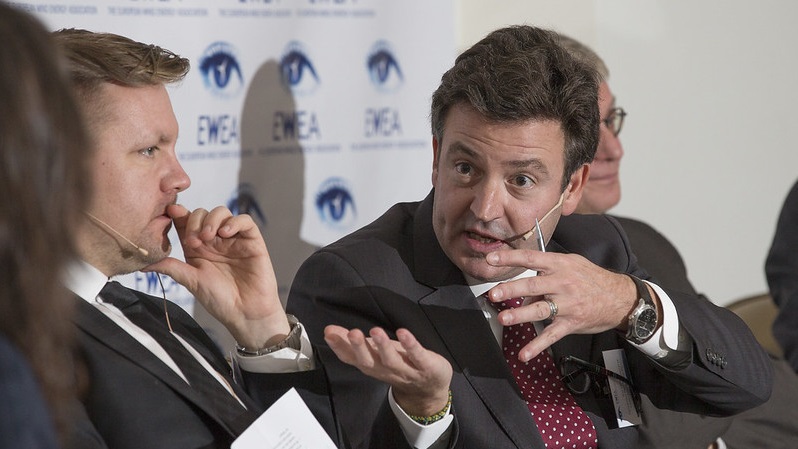Lentz accused the European Union of helping protect fossil fuel investments but climate campaigners accused him of a “desperate attempt” to keep the EU in the treaty
The head of an energy investment treaty has warned the European Union that protections for fossil fuels will be locked in if the bloc leaves the treaty without signing off on green reforms.
The European Commission has proposed a mass exit from the Energy Charter Treaty (ECT) on climate grounds, as the treaty has allowed fossil fuel companies to sue governments over climate action.
But the treaty’s head Guy Lentz wrote an angry letter to the president of the European Parliament Roberta Metsola on Monday, arguing that leaving the treaty without reforming it would actually give more power to fossil fuel companies.
Lentz accused the European Union of inconsistency, spreading misinformation. He also warned that the EU exiting the treaty before it is modernised will prolong investment protections for fossil fuels in Europe and elsewhere.
Friends of the Earth campaigner Paul de Clerck accused Lentz of “a rather desperate attempt” to stop the EU leaving the ECT. “Guy Lentz and the ECT missed the boat and now try to call it back, but that will not work,” he told Climate Home.
A post-Soviet treaty
The 1998 Energy Charter Treaty, which has around 50 signatories including European Union countries, was designed to protect companies in the energy industry by allowing them to sue governments on policies affecting their investments.
After several European countries were sued over climate policies that hurt fossil fuel profits, the European Commission persuaded reluctant members like Japan and Azerbaijan to agree to reforms. If enacted, those would give countries the power to end protections for fossil fuels under the treaty.
In June 2022 the EU and UK announced they would end protection for new fossil fuel investments and phase out protection for existing fossil fuel investments in ten years’ time.
This was a slower phase-out than climate campaigners and some EU governments had hoped for, but it was the only compromise other EU members accepted.
At the end of last year, several big European countries said they would quit the treaty despite the reforms. Last week the European Commission backed the proposal of a collective exit.
The European Commission was unable to get all EU states to agree to approve the reforms it had negotiated so a vote on the treaty’s reforms was postponed until April 2023.
The EU has been the driving force behind the reforms, meaning that, without its members’ support, they are unlikely to pass.
The consequence is that remaining ECT member states like Japan, Switzerland, the United Kingdom and countries in Central Asia will not be able to remove investment protections from fossil fuels.
Locking Asia in?
In his letter, Lentz says that if the EU doesn’t modernise the ECT then they will be enacting “an express prohibition” for other ECT members from better aligning with the Paris agreement.
But Yamina Saheb, a Paris-based campaigner against the ECT, says that the EU should withdraw without reforming the treaty and what other countries do “is up to them to decide”. Climate Action Network campaigner Cornelia Maarfield agreed EU countries should leave.
Lentz said that leaving without reforming the treaty will help fossil fuel companies sue governments within the EU over climate action for longer.
This is because the ECT has a 20-year sunset clause, which means it applies to countries for 20 years after they leave.
Study: IPCC asks emerging countries to drop coal faster than rich nations did
Italy left the treaty in 2016. But last year, a British oil and gas company used it to force the Italian government to pay €190m ($204m) over their decision to ban oil drilling near Italy’s shoreline.
If the treaty is reformed before the EU leaves, the 20-year sunset clause will not protect new investments in fossil fuels. If it is not, then new fossil fuel investments will remain protected.
The EU governments who are pushing to leave hope to enforce a joint agreement stopping fossil fuel companies based in the EU from suing EU states while the 20 years runs down.
But Lentz warned that this agreement “may not provide the expected legal certainty”, citing complex legal arguments in four bullet points.
Paul de Clerk said Letnz was “bluffing”. Maarfield said the ECT head made a “number of legally unsound claims that we have already h
Read More

